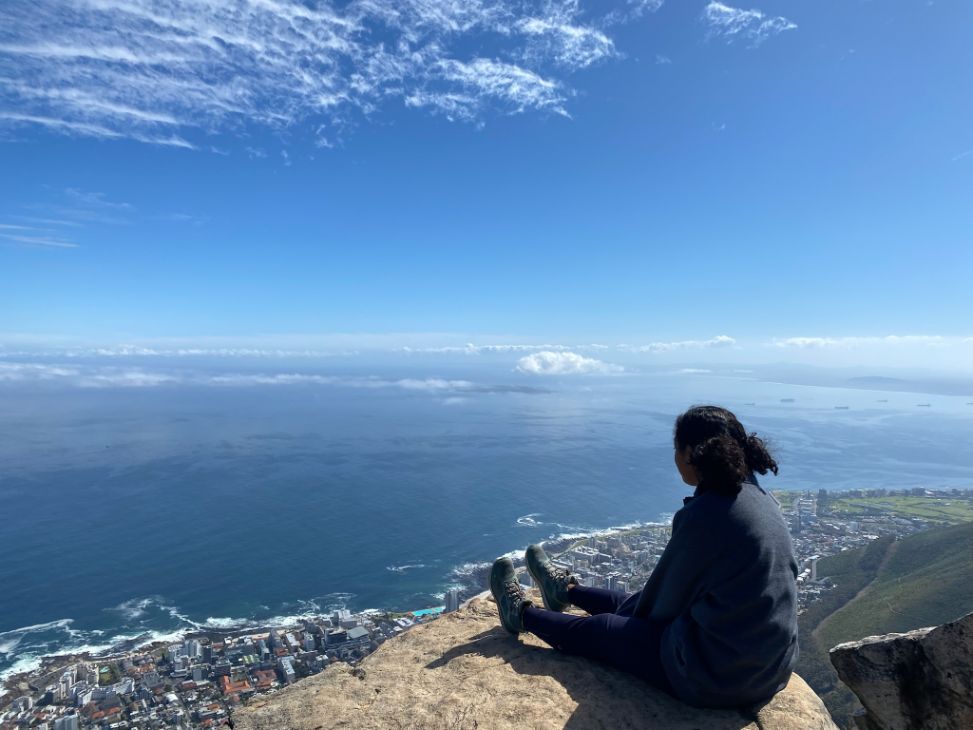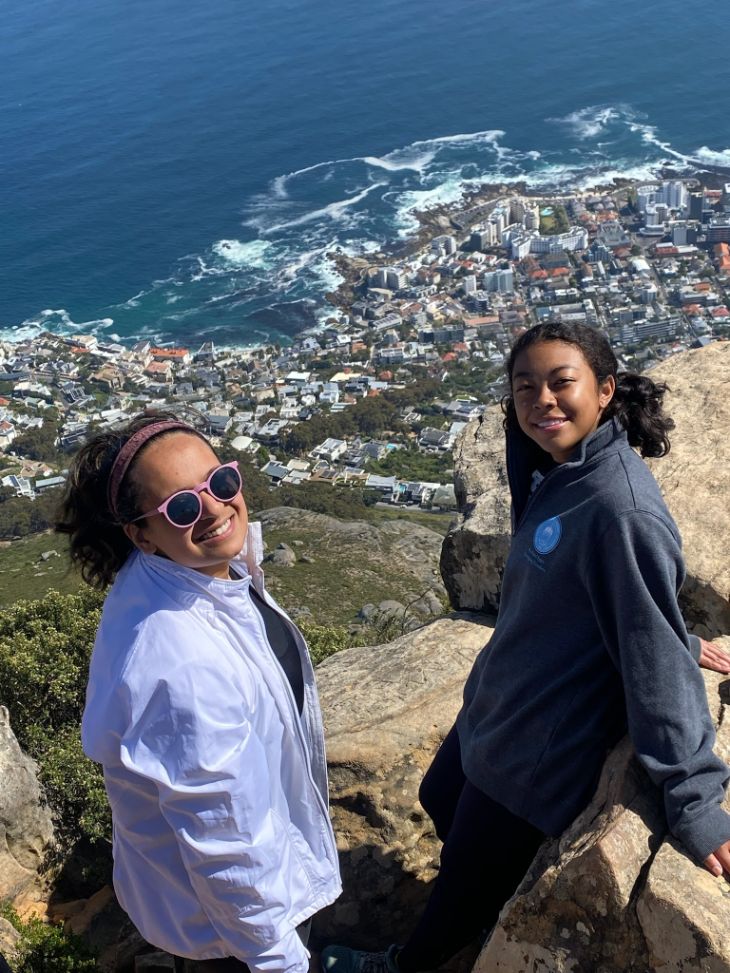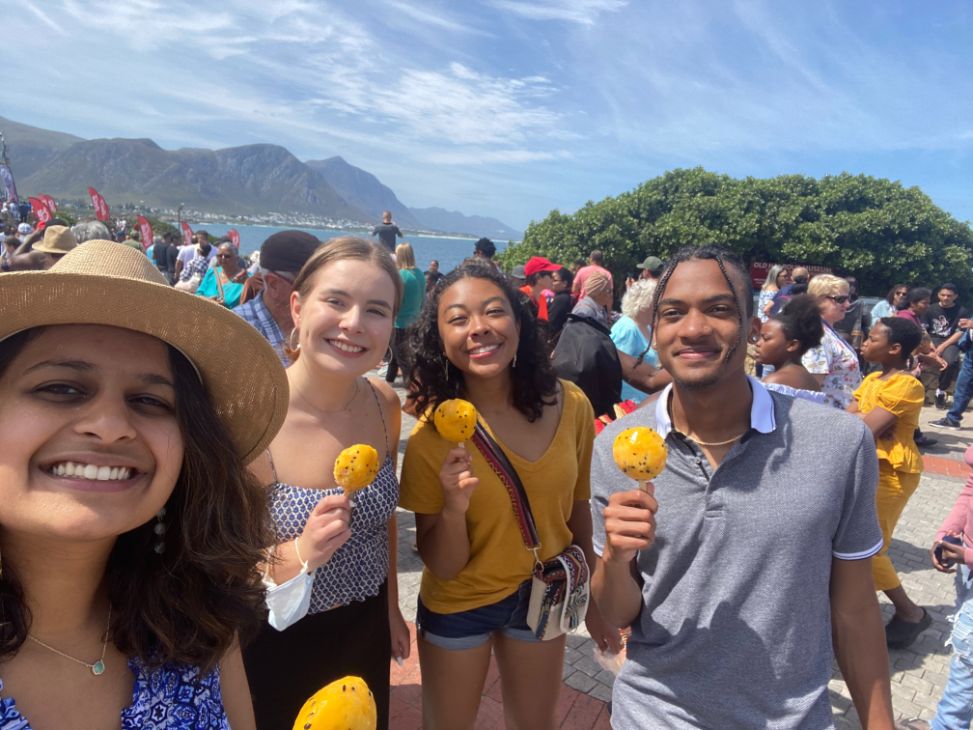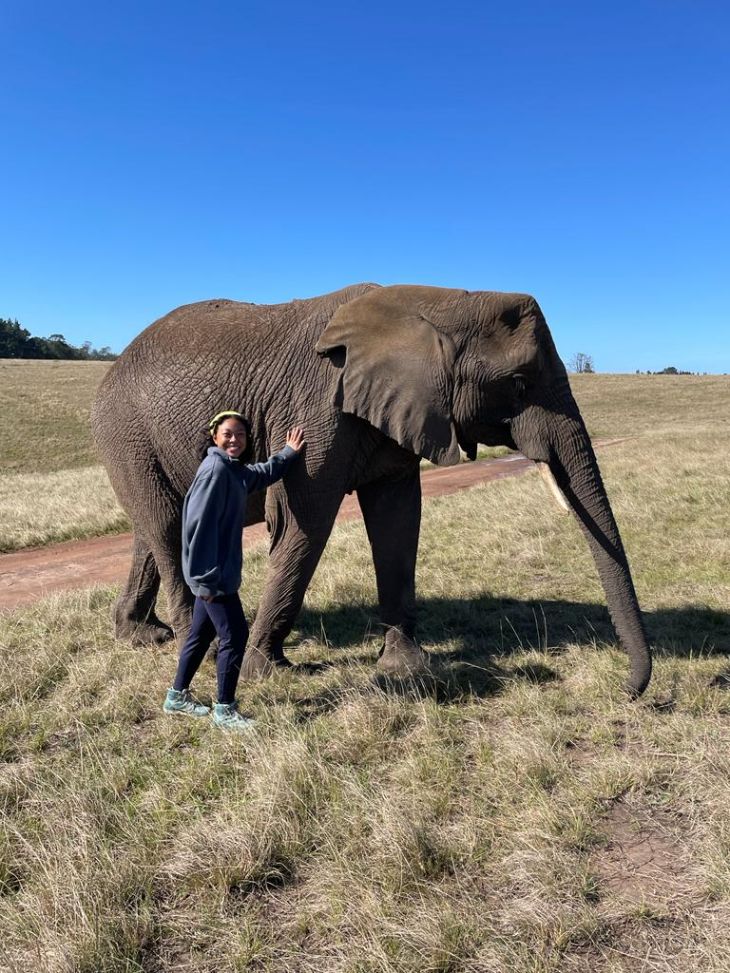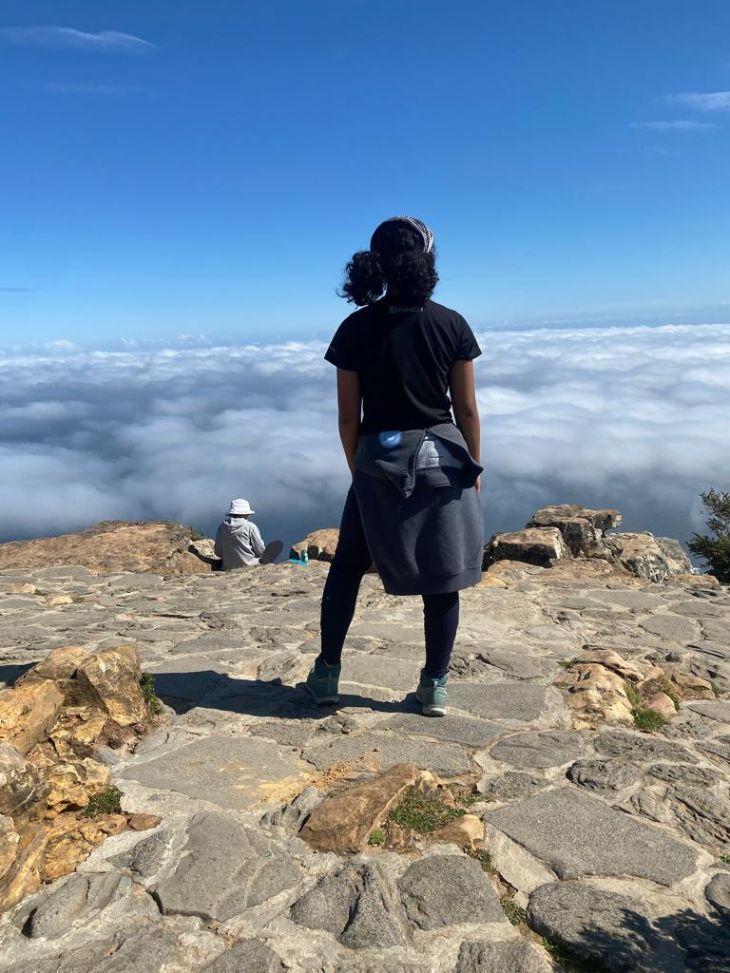Boatemaa Agyeman-Mensah
About My Study Abroad Program
Major/Minor: English & Comparative Literature Major; Philosophy Major; Korean Minor
Program: UNC Honors Cape Town
Location: Cape Town, South Africa
Email: boatemaa@email.unc.edu
Term: Fall 2022
Why did you choose to study abroad and how did you select your program?
I chose this program because I have always been super interested in visiting South Africa after reading Mark Mathabane's autobiography. Since middle school, I was fascinated by how the country's relationship to apartheid mimicked the US' Jim Crow legislation, but whereas the US was slow to progress, South Africa managed to establish a Black president immediately after its racial liberation (thus, it was intriguing to experience dynamic of having a BIPOC majority in a post-council, and the post-colonial history class gave me the opportunity to familiarize myself with the process both in and out of the classroom. I was also drawn to the fact that this program is centers around community-based internships—for me, that meant I would have the chance to engage in both human rights litigation and international law. An opportunity not often afforded to undergraduates. Additionally, I found the idea of studying in Cape Town quite attractive because of the beauty of the environment is simply unparalleled. There are mountains literally at the backdoor of your abode that you can climb (with Table Mountain being considered one of the Seven Wonders of the natural world). A fifteen-minute drive, and you can surf at the beach. A ten-minute drive, and you can be in the heart of the city to shop, go clubbing, eat wonderful food, etc. For me, there was no question that if I studied abroad, I would do the Honors in Cape Town program.
What did you learn about yourself?
As I mentioned above, I'm quite grateful for my time at the LRC. I got to practice law that was directly used to protect the rights and lives of people like me. I got to really understand the demands of a human rights law career, beyond the lofty dream of ‘doing the right thing.’ I learned how the binary of good vs. bad, right vs. wrong can be complicated, not only for the actions of the perpetrator, but for the actions of a lawyer as well. And maybe I’m not cut out to be a lawyer, but maybe that’s okay. I would have never known that without having firsthand experience, though.
What is one of your favorite memories from your program?
I found my internship as a legal intern on the education team at the Legal Resources Centre (LRC), to be super important to how I remember South Africa. Initially, I was starstruck to be selected to work there—the LRC was an amazing human rights organization that was essential to the legal dismantling of the apartheid government. I thought I would be responsible for so much change. But it turned out that on the day to day, I didn’t do much. Most students my age in South Africa would already be in law school, so I often felt extremely under qualified and not helpful to my internship program. Usually, I just sat in on client consultations, tagged along with a candidate attorney (which would be like an entry level attorney in the US, but with fewer responsibilities and more menial task—like a probationary period ) visiting the townships and helping him collect forms, data, etc. from clients. That being said, I got to see South Africa up close. I got to experience South Africa’s legal system, and how, despite having what is considered to be “the most progressive Constitution in the world,” we must remember that it is a fledgling nation with a dark history. And that means that human rights violations are rampant throughout the world, from the high socioeconomic disparities to being the “rape capital of the world.” I learned how taxing it was to be a lawyer. How painful it is to work in an NGO law firm, which constantly has to turn people away due to a lack of resources. And while that all sounds negative, I’m quite grateful for the experience. Only be working could I get such an intimate look at the country and an opportunity for self-reflection.
What advice do you have for future study abroad students?
One piece of advice for future study abroad students is be flexible. Allow the experience to change you. I think the times of most uncertainty and discomfort arose when my reality brushed up against the assumptions of person I was convinced I was, whether that be the assumption that I was meant to be a human rights lawyer or the assumption that I would move through the world as Black (I'll touch more on this later). The more flexible you can be about your place in the world/society, the more you can gain from this experience. My next piece of advice is to remember your support systems. And I'm not just talking about the people you meet or the program coordinators—I'm referring to the tried and true bedrocks. The family and peers across the ocean that have proven they are more than fair-weather friends. It's easy to feel isolated and forget/struggle to schedule time for a grounding call with the people who know you best. I'd suggest trying to call home regularly. Maybe even try to schedule something weekly or bi-weekly early on.
How do you identify?
Student of color, Scholarship Recipient
Could you share any experiences where your identity played a role in your time abroad?
In South Africa, it's hard not for identity to permeate into every experience. For one, Cape Town is often called "the rape capital of the world," making it unsafe to commute alone on foot as a woman. Especially as a woman of color. However, my racial identity was fundamental to how I experienced South Africa. For one, racial designations there are different from the USA, so it was especially odd to enter a new place, and realize that I was no longer considered Black by the majority of the people I interacted with. It changed both the level of privilege but also the level of ignorance I had about my own social place in the country. Lastly, it was hard not to feel the implications of my race in the country while living in the program's majority white household. It was startling being in a majority Black country, but only seeing faces like my own as domestic workers in the city or always frequenting majority white places with my peers.
Is there any advice you would give to other students who share your identity?
I'm not sure that there are many students at UNC that share my particular identity. But regardless, my advice is: 1) BIPOC prospective scholars should talk to other BIPOC study abroad alums—especially Black scholars talking to Black study abroad alums. I think a lot of the disillusionment I felt could have been mitigated by adjusting my expectations of the program and remembering that—despite being in South Africa—the program is still being operated by a majority white institution. My 2nd, and largest piece of advice to BIPOC students is travel! I think it’s the only way to feel seen. To feel connected to the nation. Being in Cape Town, you’ll often only see Black people as domestic workers, servers, laborers, blue collar workers, etc. at establishments with exclusively white patrons. The only way to really feel the nuanced cultural and socioeconomic experiences of over 90% of the country is to leave the bubble that is Cape Town. My best experiences abroad were the times I got to travel domestically. When I arrived in South Africa, I had the opportunity to stay in the home a friend who lives in Port Elizabeth before the start of the program. And the experience of going from a Black homestay in the Eastern Cape (which is majority Black) really grounded me when I began the Honors program in Cape Town (which is the majority white Western Cape). It helped me understand and humanize the Eastern Cape, which was often looked down upon by the people I interacted with—including, at times, my professors and program coordinators. Traveling helped give a well rounded experience to my trip and filled in the gaps of racial realization I felt as a BIPOC student. I felt this way again when I visited Johannesburg, which our program deemed “too unsafe” to visit as a group. However, what I saw was Black excellence. Black affluence. I felt seen and safe in a way that I never did in Cape Town or by my majority white UNC program. So, that is my biggest recommendation to any scholar (particularly BIPOC scholars) joining the Honors Cape Town program:
If you faced any challenges abroad, where could you turn to get the support you needed?
I believe that the program coordinator and the TA did their best to support us. That being said, they were upfront about the fact that being white meant that they could not necessarily support the students of color, and that was an extremely isolating experience as many of our biggest issues with the program was dealing with our new racial ambiguity and dealing with racism (both in the program and beyond). This meant, that racial support often fell on BIPOC students uplifting each other (which could often be tiring, but ultimately created the strongest bonds). Hopefully, the necessity of students taking on this role of emotional support will no longer be as potent in the future as the program coordinator, Julie, recently stepped down from her role and appointing a Black, Xhosa South African woman to be the future leader of the program.
Memories
